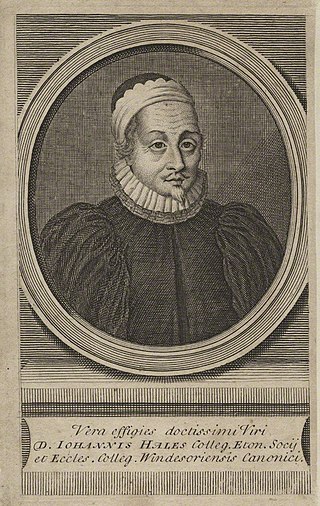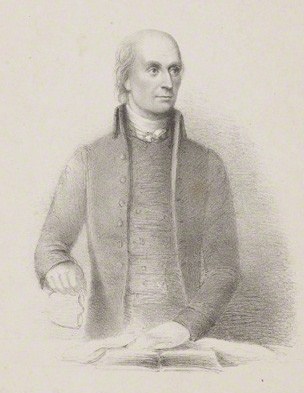Related Research Articles

Christopher Love was a Welsh Presbyterian preacher and activist during the English Civil War. In 1651, he was executed by the English government for plotting with the exiled Stuart court. The Puritan faction in England considered Love to be a martyr and hero.

John Hales was an English cleric, theologian and writer. An eminent if modest and critic, his posthumous works earned him the title of the "Ever-memorable".

Andrew Fuller was an English Particular Baptist minister and theologian. Known as a promoter of missionary work, he also took part in theological controversy.
John Brine (1703–1765) was an English Particular Baptist minister.
Samuel Hammond D.D. was a Church of England minister, and later a nonconformist.
Samuel Bolde (1649–1737) was an English clergyman and controversialist, a supporter of the arguments of John Locke for religious toleration.
George Harris was a British Unitarian minister, polemicist and editor.
Henry Bagshaw D.D. (1632–1709), was an English divine.
Rev John Baillie (1741–1806) was a British minister of the Secession Church.
Philip Skelton (1707–1787) was an Irish Protestant clergyman and writer.
John Brekell (1697–1769) was an English presbyterian minister and theological writer.
The Socinian controversy in the Church of England was a theological argument on christology carried out by English theologians for around a decade from 1687. Positions that had remained largely dormant since the death in 1662 of John Biddle, an early Unitarian, were revived and discussed, in pamphlet literature.
John Seddon (1719–1769) was an English Unitarian minister.
Thomas Rutherforth (1712–1771) was an English churchman and academic, Regius Professor of Divinity at Cambridge from 1745, and Archdeacon of Essex from 1752.

William Richards (1643–1705) was an English clergyman and author.
William Dodwell (1709–1785) was an English cleric known as a theological writer, archdeacon of Berkshire from 1763.
James Purves (1734–1795) was a Scottish universalist minister.
James Yates F.R.S., F.L.S., F.G.S. was an English Unitarian minister and scholar, known as an antiquary.

Joseph Kinghorn (1766–1832) was an English particular Baptist and a life-long minister of St. Mary's Baptist Church in Norwich.

Joseph Benson was an early English Methodist minister, one of the leaders of the movement during the time of Methodism's founder John Wesley.
References
- . Dictionary of National Biography . London: Smith, Elder & Co. 1885–1900.
- Attribution
![]() This article incorporates text from a publication now in the public domain : "Hails, William Anthony". Dictionary of National Biography . London: Smith, Elder & Co. 1885–1900.
This article incorporates text from a publication now in the public domain : "Hails, William Anthony". Dictionary of National Biography . London: Smith, Elder & Co. 1885–1900.